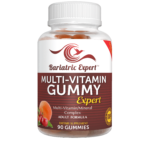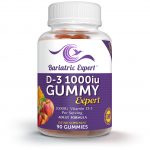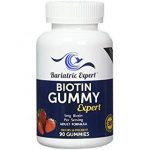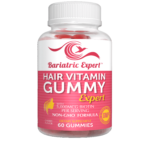Old buzz words = Atkins, Keto, Paleo, Mediterranean, Opti fast, Weight Watchers, Vegan, Vegetarian.
New buzz word = High Protein Diet
Yes, folks, it’s all about the protein today. Will this also go out of fashion? Maybe, Probably? If we look to the past, we can see what the future holds. I think that it will change again and we will all make a “hard left turn”. But, in the meantime, high-protein diets make a lot of scientific sense.
If you dig deep into the studies and understand from a biological standpoint just “why” we are on the protein train, it will make a whole lot of sense.
Low blood sugars = low insulin levels.
We are striving for lowered insulin levels.
If you just remember this point, a high protein, moderate healthy fat, and low carbohydrate intake is what we are currently striving for.
What does a high-protein diet look like? If you focus each meal/ snack around your intake of protein, you won’t have to work too hard to meet your protein goal.
What is your protein goal to stay healthy? Here is an equation to help you work it out.
Your goal weight, multiplied by .36 = grams of protein.
150 x .36 = 54 grams of protein per day.
This is an average. Remember, we are biochemical individuals. For men, add a bit more due to increased muscle mass. Are you very active? Add some more grams to your day. Injured? Recovering? Illness? The same rules apply. Protein is your “building block”.
We are not computers. Some days we will hit our protein goals, some days we won’t. Our bodies know exactly what to do.
At the beginning of our bariatric journey, it will be difficult to be able to eat 60 grams of protein. You won’t be able to do it in 1 sitting. What about splitting it up between 3 or 4 meals. What would that look like? Let’s look at some specific foods and the amount of protein they contain:
- 2 eggs = 12 grams
- ½ chicken breast (4 ounces) = 31 grams
- ½ can of tuna = 15 grams
- ½ cup of Greek yogurt = 10 grams
- ½ cup of cottage cheese = 12 grams
- Fish filet (4 ounces) = 25 grams
- Cheese (1 ounce) = 7 grams
- Almonds ¼ cup – 4 grams
Notice how I didn’t mention “protein shakes or supplements”?
Want to know why?
Protein shakes are not healthy food. I don’t consider them “whole, live, fresh, natural, good quality food. They are a lab-manufactured item that we use before surgery for a few weeks and a month to two months post-surgery. These shakes are a tool to get us prepped for surgery and to help us get in some protein after surgery.
Once you have enough space in your new bariatric tool, it’s best to switch off of them and replace them with REAL FOOD. Sure, they contain some protein in the form of whey protein, pea protein, hemp protein etc., but they also contain a lot of things that we don’t want to be consuming such as artificial colors, artificial flavors, artificial sweeteners, emulsifiers, stabilizers, etc., etc.
Remember, real food for the win.
What I have learned is that for me, and my biochemical individuality, I feel fuller for a longer period following this style of diet. When I eat a lot of processed carbs, I feel bad. My body feels bad. My head feels bad.
Let’s all tune into our bodies and ask ourselves, how does this food make me feel? Am I craving a salad? Does fish sound like a good idea? What if I add some avocado to my scrambled eggs? Will it keep me more satisfied?
If you have protein questions, reach out to me. I’m right here behind my screen and I would love to help you navigate all of this.
Healthy Hugs,

About the Author: Sheri Burke is a Registered Holistic Nutritionist and Bariatric Surgery Coordinator at International Patient Facilitators in Tijuana and Cancun, Mexico. She has worked with bariatric surgery clients for over 10 years and especially enjoys providing nutritional guidance to pre and post bariatric clients. In her free time, she enjoys spending time with her husband and two teens and cooking up a nutritional storm in the kitchen.
For bariatric patients Bariatric Expert Amazon Line
Time for a “bariatric expert” multivitamin? Here is a perfect way for bariatric patients to get it now on Amazon: Bariatric Expert MultiVitamins.
Eat Like a Bariatric Expert with our Nutrition Plans.
Feel free to share your victories and struggles in our Facebook Group. I would love to connect with you.
Click on the picture







